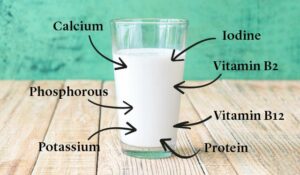In the world of weight loss, the “calories in, calories out” (CICO) method has become a go-to formula. The logic seems sound: if you consume fewer calories than your body needs (calories in), you’ll burn stored fat to make up the difference (calories out), leading to weight loss. While this basic principle is scientifically valid, focusing solely on calorie numbers misses a crucial point — not all calories are created equal.
On a superficial level, it’s true that you can lose weight by consuming fewer calories than you burn. If you eat fewer donuts than your body needs to maintain weight, you will see a drop on the scale. But the question is: what kind of weight are you losing, and what kind of health are you gaining or losing in the process?
The food choices you make not only influence how quickly or slowly you lose weight but also have a profound impact on your metabolic health, hormone balance, energy levels, inflammation, and long-term well-being. So, yes, while you may lose weight on a diet of Twinkies or fast food, you’re missing the bigger picture: sustainable health, vitality, and strength come from nourishing your body with high-quality, nutrient-dense foods that fuel your body, balance your metabolism, and support your overall health.
In this article, we’ll dive into why focusing solely on calories is misguided and explore how choosing whole foods such as organic grass-fed meat, pasture-raised eggs, organic fruits, vegetables, and raw milk can lead to more sustainable, healthy weight loss and optimized wellness.
Blood Sugar Spikes and Crashes: The Metabolic Rollercoaster
Let’s start with one of the most immediate impacts of a diet loaded with processed foods: blood sugar spikes. When you consume a food rich in refined carbohydrates and sugars — think about that morning donut or sugary cereal — your body breaks down the sugar quickly, leading to a rapid spike in blood glucose. Your body reacts by releasing a large amount of insulin to bring your blood sugar levels back down, and that sharp drop is what causes that inevitable crash — leaving you tired, cranky, and craving more sugar.
This constant cycle of spiking and crashing blood sugar doesn’t just lead to a rollercoaster of energy levels. Over time, it wears down your body’s ability to regulate glucose, leading to insulin resistance — a condition where your body becomes less responsive to insulin and struggles to manage blood sugar properly. Insulin resistance is a precursor to Type 2 diabetes, metabolic syndrome, and a host of other chronic health issues.
Countless studies show that diets high in refined carbohydrates, particularly sugar-sweetened beverages and processed foods, significantly increase the risk of insulin resistance and Type 2 diabetes, regardless of weight status. This means that even if you’re eating in a caloric deficit, the high consumption of sugary, processed foods could be laying the foundation for metabolic dysfunction.
On the flip side, whole foods like organic grass-fed meat, pasture-raised eggs, and raw milk provide high-quality proteins and healthy fats, which slow the digestion of carbohydrates, leading to steadier blood sugar levels. For example, raw milk contains a balance of fats, proteins, and natural sugars that, when consumed together, don’t create the sharp spikes in blood sugar that processed foods do. These natural fats and proteins help to stabilize your insulin response and keep you satiated for longer periods, reducing cravings and overeating.

Research published in the Journal of Clinical Nutrition demonstrates that whole foods improve insulin sensitivity and help maintain steady glucose levels throughout the day. Participants in the study who followed a whole-foods-based diet had lower fasting blood glucose and better insulin response compared to those who consumed processed foods, even when their overall calorie intake was similar.
The Importance of Nutrient Density: Fueling Your Body for Long-Term Health
Nutrient density is a concept that’s all too often overlooked when people focus exclusively on calorie counting. If you’re eating in a calorie deficit but getting the majority of your calories from nutrient-poor foods like sugary snacks or fast food, you’re likely depriving your body of the vitamins, minerals, and antioxidants it needs to function optimally. In other words, you’re feeding your body calories without nourishing it.
Let’s look at an example: One Twinkie contains roughly 150 calories, mostly from sugar and refined flour. Those 150 calories provide you with almost no vitamins, minerals, fiber, or healthy fats — nutrients that your body requires for muscle repair, immune function, brain health, and energy production. By contrast, a serving of organic pasture-raised eggs (also around 150 calories) delivers high-quality complete proteins, healthy fats like omega-3s, and an array of essential nutrients like vitamin D, choline, and B vitamins.
A 2019 study in The British Journal of Nutrition highlights that people who consume nutrient-dense foods, particularly those rich in vitamins, minerals, and antioxidants, experience better overall health outcomes, including improved metabolism, higher energy levels, and reduced risk of chronic diseases like heart disease and cancer. The study compared two groups: one consuming mostly processed, low-nutrient foods, and the other consuming a diet rich in whole, nutrient-dense foods. Even when total calorie intake was controlled, the whole foods group showed better physical performance, stronger immune response, and better mental clarity.
This is because your body requires a range of micronutrients to perform essential functions. For example, magnesium supports muscle and nerve function, zinc is crucial for immune function and wound healing, and vitamin D is necessary for maintaining bone health and regulating immune responses. Without these nutrients, your body doesn’t work as efficiently.
Inflammation and Toxin Buildup: The Silent Saboteurs of Health
Now, let’s talk about inflammation — a concept that’s increasingly recognized as one of the root causes of many chronic diseases. Chronic inflammation is the result of your immune system being constantly activated to fight off threats, whether they come from external toxins, poor diet, or stress. While short-term inflammation (such as the response to an injury) is a natural and protective mechanism, long-term, chronic inflammation is damaging and can lead to diseases such as heart disease, cancer, autoimmune disorders, and even neurodegenerative conditions like Alzheimer’s.
So how does diet tie into this? Processed foods — particularly those rich in refined sugars, industrial seed oils, and preservatives — are notorious for triggering inflammation. For instance, industrial seed oils like canola, soybean, and corn oil contain high levels of omega-6 fatty acids, which can promote inflammatory pathways in the body when consumed in excess. Many packaged and fast foods are loaded with these oils, making them prime culprits for increasing chronic inflammation levels.
In contrast, whole foods like grass-fed beef and wild-caught fish are rich in omega-3 fatty acids, which are anti-inflammatory and help balance the omega-6 to omega-3 ratio in your diet. Studies have found that diets rich in whole foods, particularly those containing omega-3 fatty acids, reduce inflammation markers and lower the risk of developing chronic diseases.
Processed foods also tend to contain artificial additives, preservatives, and other toxins that your body struggles to process. Over time, the buildup of these toxins can put immense strain on your liver and kidneys, the organs responsible for detoxifying your body. When these organs are overwhelmed, toxins remain in your system longer, contributing to oxidative stress and inflammation.
By choosing organic, nutrient-dense whole foods, you’re not only reducing your intake of harmful chemicals and additives, but you’re also giving your body the nutrients it needs to detoxify efficiently. For example, organic fruits and vegetables are rich in phytonutrients and antioxidants, which help neutralize free radicals (unstable molecules that can cause oxidative damage) and support your body’s natural detox processes.
Not All Calories Are Equal: A Dangerous Lie Perpetuated by Some “Health Experts”
One of the most damaging misconceptions in the weight loss industry is the idea that a calorie is a calorie. While the concept of a caloric deficit is essential for weight loss, the source of those calories is equally, if not more, important. Eating 1,500 calories worth of donuts is not the same as eating 1,500 calories of organic grass-fed beef, vegetables, and healthy fats.
The reason? Processed foods are loaded with empty calories — calories that come from sugars and fats with almost no accompanying vitamins, minerals, or nutrients. On the other hand, whole foods are packed with essential nutrients that support your metabolism, energy production, immune system, and cognitive function.
When you focus on nutrient-dense, high-quality foods, you’re giving your body the fuel it needs to thrive. You’re supporting healthy hormone function, balancing your blood sugar, reducing inflammation, and ensuring that your body can efficiently detoxify and repair itself.
By prioritizing quality over quantity, you’re setting yourself up for long-term success in both weight loss and overall health. And that’s something no processed, calorie-counting approach can offer.
Sustainable Weight Loss Comes from Quality Nutrition
At the end of the day, the goal should be sustainable, long-lasting weight loss that not only helps you shed pounds but also supports your overall health and well-being. Focusing solely on calories ignores the bigger picture of how food interacts with your body on a deeper, biochemical level. Whole, nutrient-dense foods like organic grass-fed beef, pasture-raised eggs, organic raw milk, fruits, and vegetables provide your body with the building blocks it needs to perform optimally.
So next time someone tells you that “calories are calories,” remember: it’s not just about how much you eat; it’s about what you eat and how it fuels your body for the long run.








